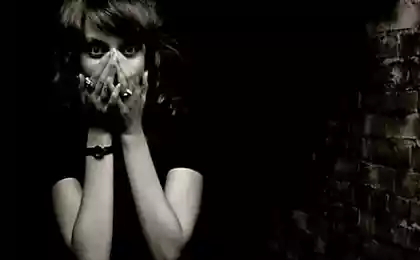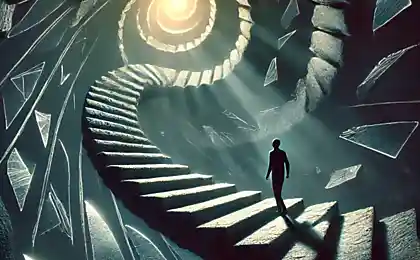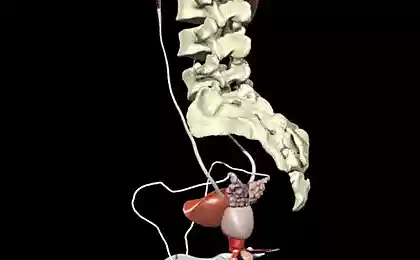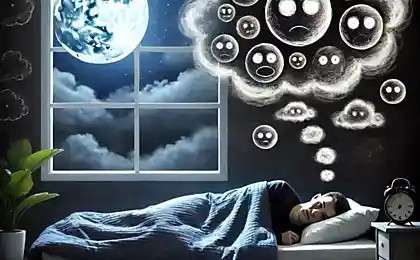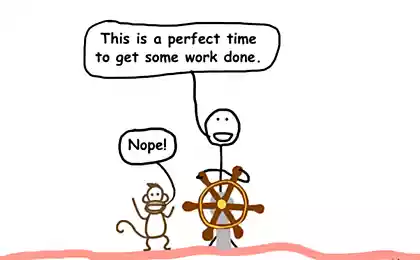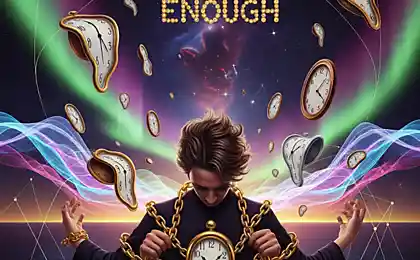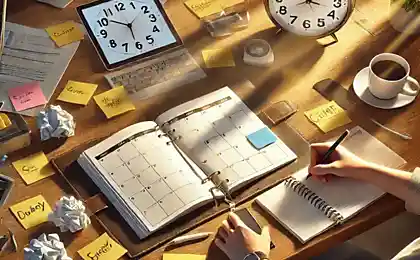43
12 Signs You Are Thinking Too Much About The Future
The future... The word itself is both a promise and a threat. It is an endless field of possibilities and at the same time a bottomless abyss of uncertainty. On the one hand, we are the architects of our future, on the other hand, we are just passengers on a ship that sails on the raging ocean of life. Planning, anticipating, aiming is embedded in our DNA. But what if this natural trait turns into an obsession, a cage woven out of fear and anxiety? At what point do dreams of the future become poison to the present? We will explore this phenomenon and understand how to understand that your future is no longer inspiring, but paralyzing.

An obsessive future: a wake-up call
The human mind is an incredible tool that can project itself forward into tomorrow and beyond. It allows us to make plans, to dream, to set goals. But every coin has a downside. When you begin to live not in the present, but in an endless stream of thoughts about what has not yet happened, your inner compass is lost. You become a hostage to your own predictions, constantly trying to guess, predict and control everything that might happen. It’s like constantly looking through the windshield, but forgetting to look at the road in front of you. And in this journey, you can miss the most important moments.
In terms of dianeticsConstant worrying about the future is a sign that there are so-called in the mind. engramIt causes a person to react to current events based on past negative experiences. You project past failures and fears onto potential future situations. It's like you tripped once, and now you're constantly walking around looking just at your feet, afraid to stumble again, and you lose sight of the beautiful landscape around you. Thoughts about the future are not tools for creating a better life, but chains that bind you here and now. And here are 12 sure signs by which you can check if you have fallen into this trap.
- You are constantly worried about what might happen. Your mind becomes a factory for producing negative scenarios. You don’t just think about the future, you “experience” it in advance. It could be a fear of losing your job, getting sick, getting divorced, or simply facing failure on a project. You're wasting tremendous energy fighting ghosts that haven't yet appeared.
- You forget to enjoy the present moment. Imagine you’re at a concert of your favorite band, but instead of dancing and singing, you’re thinking about having to report tomorrow. Or you're having dinner with close friends, and you're thinking about your financial problems. The present flies by as if it were just a boring prelude to something more important.
- You are a perfectionist in planning. You strive to create a perfect, flawless plan where every detail is considered and controlled. You try to be the god of your own future, but unfortunately reality is much more chaotic and unpredictable. This perfectionism does not make you more effective, but rather paralyzes you, because any deviation from the “perfect” plan causes you stress and frustration.
“Life is what happens to you while you make other plans. ?
- John Lennon.
Why is the future a prison and not a horizon?
We continue to plunge into a world of anxiety about the future. These signs are not a verdict, but rather signal beacons that indicate that it is time to adjust the course. Each of these items is a separate door behind which your fears and beliefs are hidden.
- It's hard to make decisions when plans change. You feel lost when life surprises you. You are so focused on your perfect route that any fork in the road feels like a disaster. While other people adapt easily, you spend time and energy mourning failed plans instead of making new ones.
- You avoid risk for fear of failure. You refuse new opportunities, even if they promise huge growth. "What if it doesn't work? What if I fail?” This inner voice becomes your main navigator, which always leads you on the safest, but also the most boring path. Growth and development require stepping out of your comfort zone, and you seem to have built an entire city surrounded by a high wall.

- You're anxious about money, even with a steady income. You constantly think that a “black day” can come at any moment, and therefore deprive yourself of joys and pleasures in the present. You save, save, recycle, but it does not bring you a sense of security, but only increases anxiety. You forget that money is a tool, not an end in itself.
- You put off important decisions, hoping for a better moment. “Not the time yet,” “I’m not ready enough,” “That’s when...” You wait for all the stars to come together to take action. And while you wait, time runs out, opportunities slip away, and guilt for missed opportunities grows.
- You spend your life on standby. This is one of the most insidious signs. You convince yourself that “real life” will begin later: after you get your diploma, you will find a job, buy an apartment, get married. But life is not a destination, but a journey. And if you're not living now, you're not actually living at all.
✦ It is important to understand that the future is just an extension of the present. Every action, every thought and every decision we make today shapes our tomorrow. It is impossible to build a bright future by living in constant fear and anxiety.
How to escape the trap of the future
So, you recognize yourself in these points. What now? This is not a cause for panic, but a signal to action. This is your chance to change your life for the better. Scientology teaches that the human mind can be cleansed of negative engrams that cause us to act irrationally. You can become free from these mental shackles.
The first step is awareness. You already did it after reading this article. The second is action. Remember when you avoided taking risks and put off making decisions? It's time to do something different. Here are some simple but effective hacks:
- Live in the moment. Start small. When you drink your morning coffee, focus on the taste, aroma, and warmth of the cup in your hand. When you walk, pay attention to the trees, the clouds, the sounds. Mindfulness is the key to getting yourself back into the here and now.
- Accept the uncertainty. The future will always be unpredictable. It's not bad, it's just a given. Let go of trying to control everything. Start with the little things: don't plan your lunch tomorrow until the last babe. Let there be room for spontaneity.
- Develop adaptive skills. Change your plans intentionally. For example, if you always go to work the same way, choose another. It trains your brain to adapt quickly to new circumstances.
- Take small steps. If you’re afraid of a big project, break it down into many small, manageable tasks. Each step taken will give you a sense of satisfaction and increase your self-confidence.

- You compare yourself to other people. In today’s social media crowded world, it’s easy. But remember, you only see an idealized version of someone else’s life. The only person you need to compete with is yesterday.
- You're overly passionate about news and analytics. Awareness is good, but obsession with news is different. If you keep an eye on each new headline, it will not help you prepare for the future, it will only increase your anxiety. Set a limit on reading the news.
- You're dependent on outside approval. Your opinion is the most important opinion for you. You're the captain of your ship. Only you are responsible for your life. Gradually learn to make your own decisions, starting with the little things.
- You lose faith that you can achieve happiness. This is the most serious sign. But this is also just a thought, not a fact. Happiness is not a destination. That's the way. And if you focus on what you can do today to be a little happier, that’s the surest way to be happy tomorrow.
Ultimately, the future is not an enemy, but a blank slate. And your task is not to try to paint a perfect picture on it, but to allow yourself to create a masterpiece that can change, rebuild and adapt to new colors and circumstances. Free yourself from the shackles of anxiety and start living for real, here and now.
- Glossary.
Dianetics:
The modern science of the mind, developed by L. Ron Hubbard. It explains why people act the way they do, and suggests methods to get rid of unwanted sensations, emotions and fears, making a person more capable and happy.
Ingram:
Special term in Dianetics. It is a “record” in the reactive mind that appears at the moment of unconsciousness (for example, under anesthesia, during trauma or illness). It contains all the perceptions that were present at that moment, including sounds, sensations and pain. Engrams are a source of irrational fears and anxiety.
Perfectionism:
A psychological trait that manifests itself in an excessive desire for perfection. Perfectionists set very high standards for themselves and others, which often leads to stress, anxiety, and procrastination.

